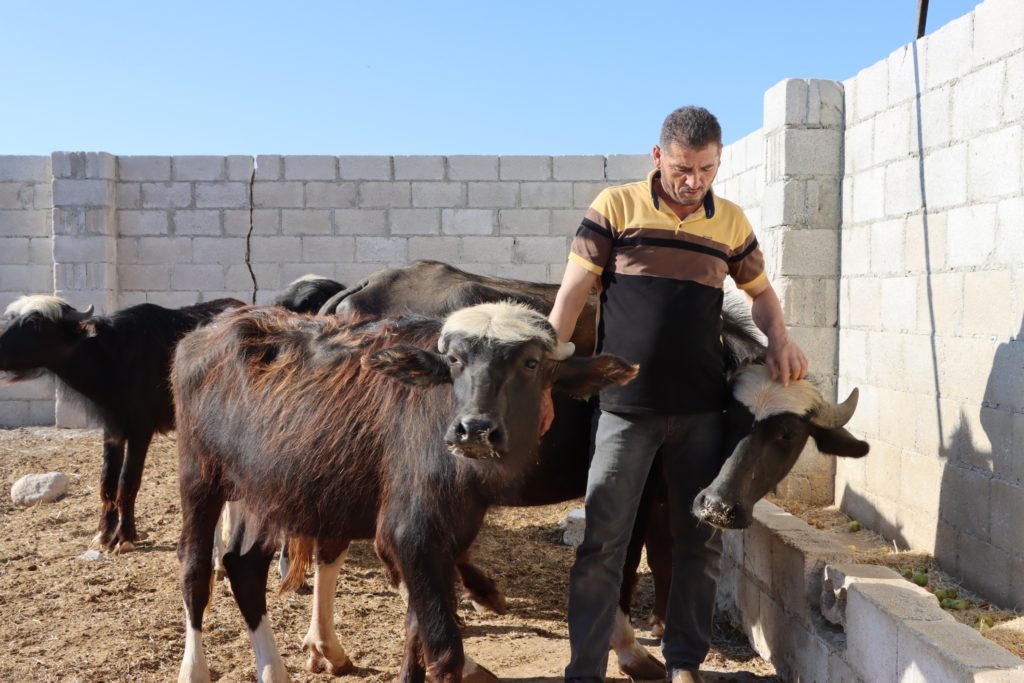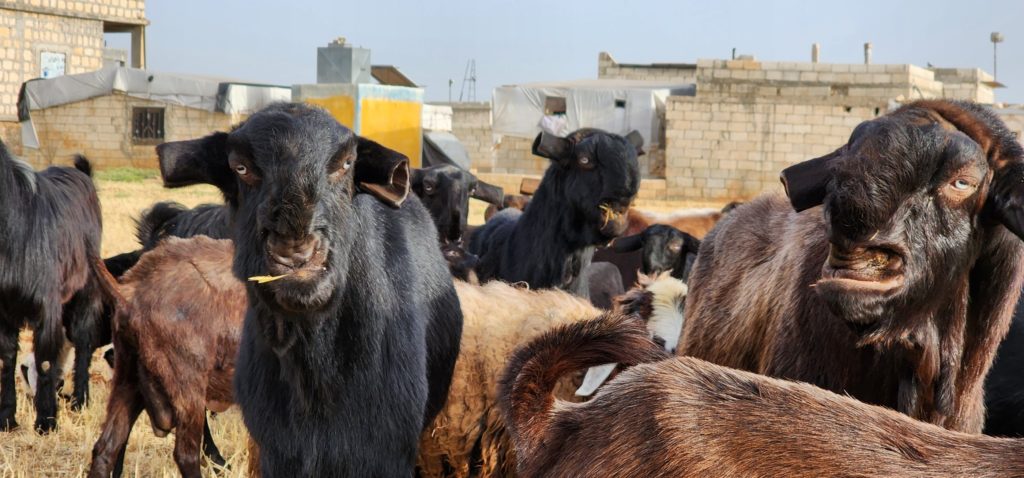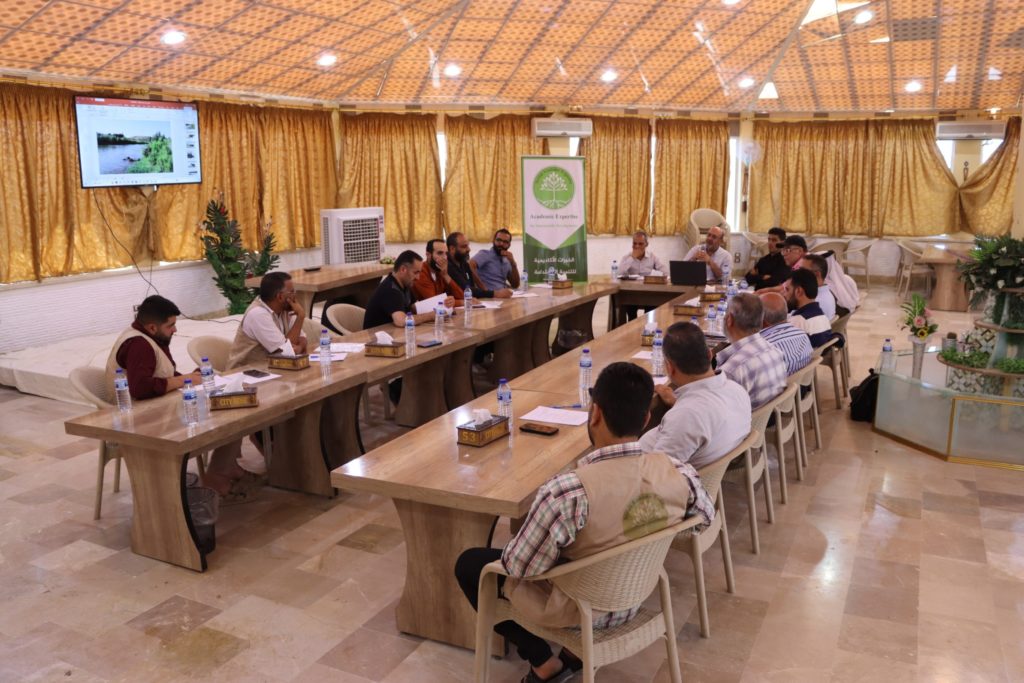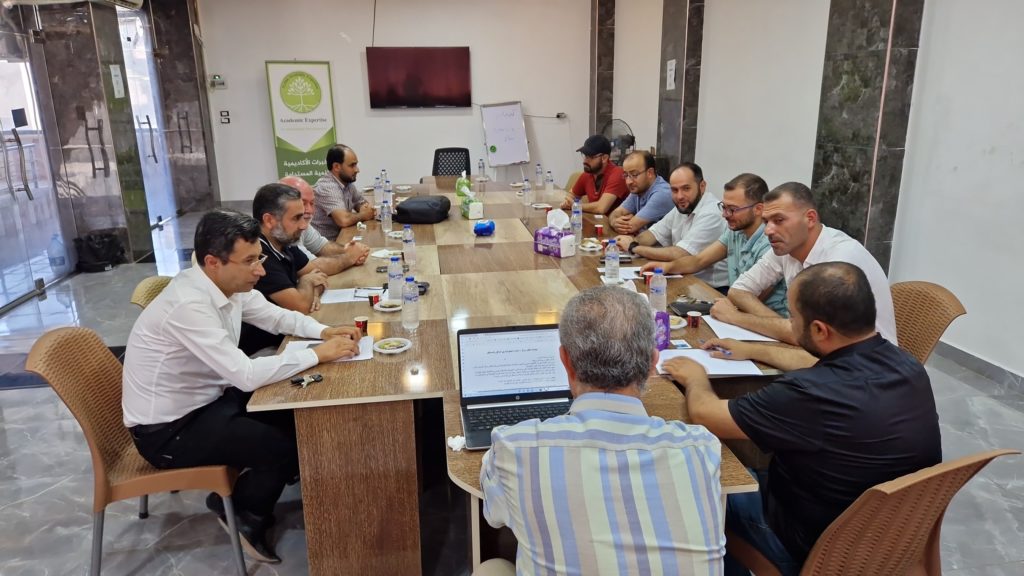
The water buffalo is an endemic bovid from Northwest Syria which has become endangered because its habitat and food chain have been dramatically transformed as a result of armed conflict and climate change. Some of the rivers, fields, and grasslands that buffalo thrived upon are now divided between government and opposition control. Displacement, bombings, and farmers selling their animals for slaughter to make ends meet have all contributed to the decline. There is very limited data related to biodiversity loss or
ecosystem service-livelihood dynamics in this geographical area.
Conflict and Fragile Ecosystems
The project “Conflict and fragile ecosystems: building capacity to address biodiversity loss in Northwest Syria” was funded by a seed corn grant awarded by the University of Sussex Business School. The AVS team collected data on biodiversity conservation and the role of water buffalo in ecosystem services for vulnerable communities in Northwest Syria. We focused on endemic species at risk of extinction which represent an important resource for farmers’ livelihoods. For more information listen to the AVS podcast episodes linked below. They were recorded in Arabic; a summary in English and Arabic is also available for each episode.
Click here to access the summary of this podcast in English and Arabic.
Click here to access the summary of this podcast in English and Arabic.

The AVS team has also collected data on Shami goat breeding in Northwest Syria. This is endemic species of goat, and therefore, the purity of this breed is slowly disappearing and reducing in the region. To learn more, Syrian Academic Expertise have now released two episodes related to Shami goat breeding in Arabic and can be found below:
Click here to access the summary of this podcast in English and Arabic.
Click here to access the summary of this podcast in English and Arabic.
The AVS team interviewed present and former buffalo breeders and spent a day on two farms shadowing the families during their everyday activities. Two focus groups with representatives of local institutions, NGOs, private businesses involved in livestock breeding and agricultural experts have been organised in Azaz and Idleb.
The information collected during this research was presented in two photobooks and a research brief accessible on this webpage.


Through a participatory research activity, our team collected information over a day by following two buffalo breeders in Azaz and Idleb. Here are the findings organised in two photobooks; click on either photobook to view in full screen:
The findings and lessons learned from this project were published in a research brief that can be accessed below.